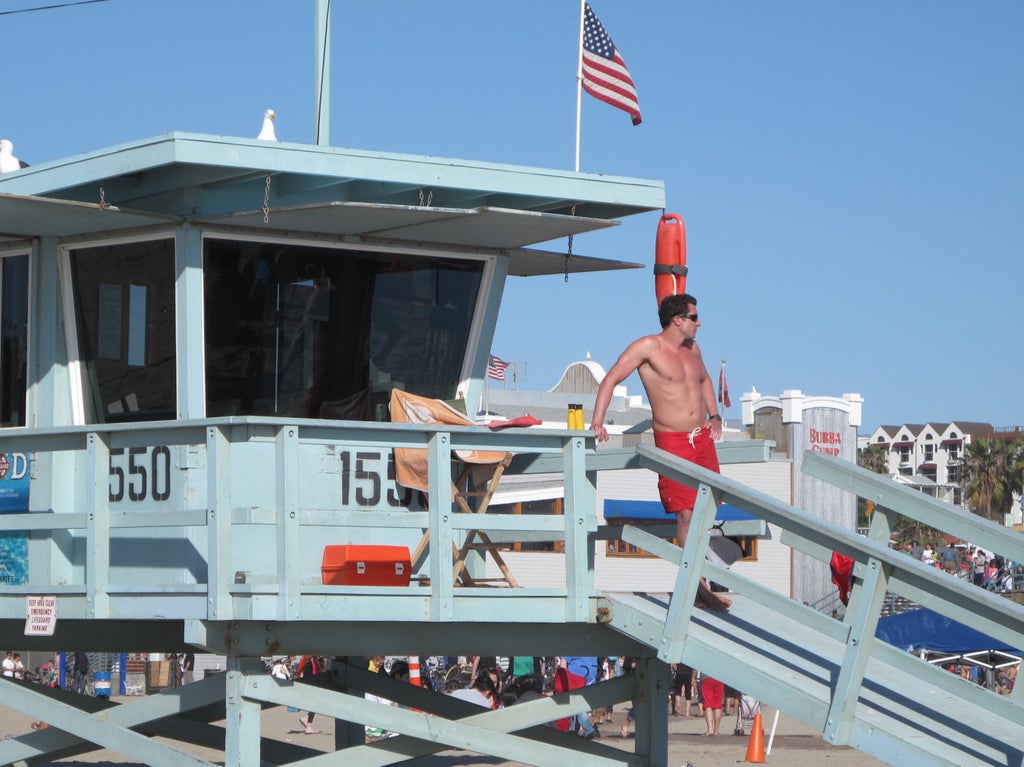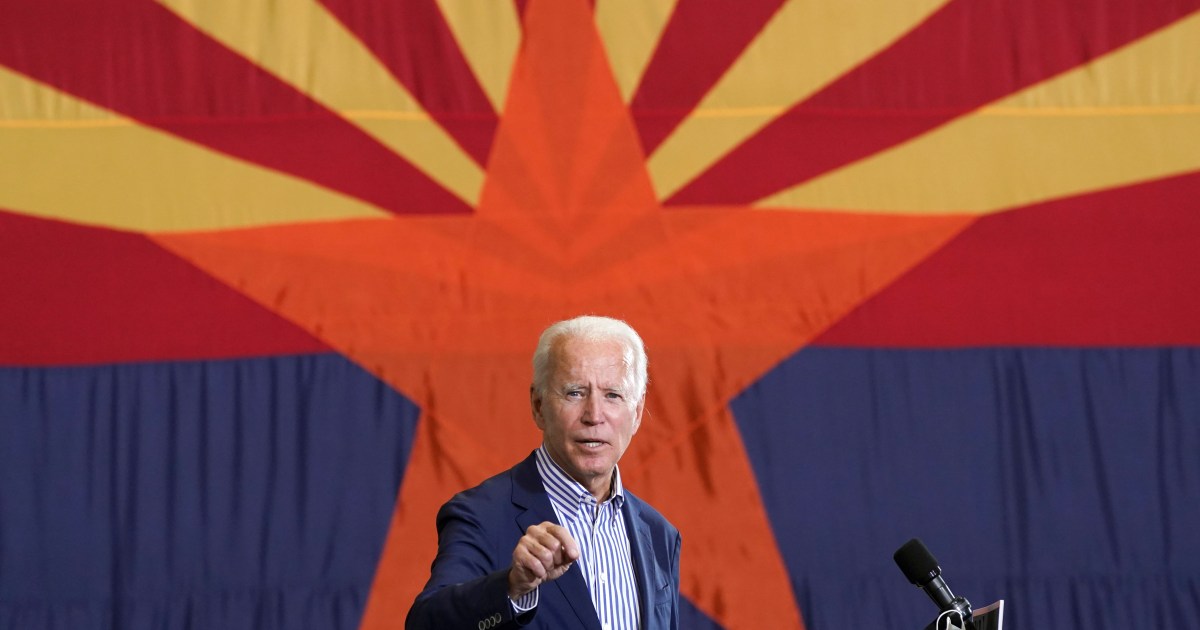Back to the US: How the new rules for British visitors will work after travel ban lifts
Six hundred days after a presidential proclamation from Donald Trump closed off the US to British visitors, the ban on arrivals from the UK will be lifted from 8 November – for fully vaccinated travellers only.
President Joe Biden said: “I have determined that it is in the interests of the United States to move away from the country-by-country restrictions previously applied during the Covid-19 pandemic and to adopt an air travel policy that relies primarily on vaccination to advance the safe resumption of international air travel to the United States.”
Here’s everything you need to know about the new system. It based on studying all the available official online information, plus inferences – clearly indicated – based on existing policies and background conversations with officials and airlines.
What are the current rules?
Visitors from the UK, Ireland and the Schengen Area (most of the EU plus Iceland, Norway, Switzerland and Liechtenstein) have been banned from travelling to the US since March 2020.
A presidential proclamation outlawing direct arrivals was made by Mr Trump and reimposed by his successor, Mr Biden, on people who have been “physically present” in one of those locations “during the 14-day period preceding their entry or attempted entry into the United States”.
The decree applies to all travellers from those locations except American citizens and foreigners with right of residence in the US. Similar bans apply to arrivals from China, Iran, Brazil, South Africa and India.
People with a compassionate reason to travel to the United States – or whose presence is held to be beneficial to the American nation – may be given a “National Interest Exception.”
But most travellers with pressing reasons to go to the US have “laundered” their status by spending two weeks in a third country, usually Mexico, before continuing by air (land borders are closed) to an American airport.
The travel ban has proved harsh for people with family or partners in the US, as well as causing damage to tourism. It has looked increasingly unjustifiable; the US remained open to arrivals from more than 150 other countries, many of them with more serious Covid concerns than Europe.
What is changing?
From 12.01am on 8 November the blanket travel ban will be lifted for arrivals from the UK, the European Union and the other nations that have been blocked during the coronavirus pandemic.
The conditions for the restart were set out on 25 October by President Biden.
Fully vaccinated foreigners from anywhere in the world will be able to visit – subject, of course, to complying with existing immigration regulations, including presenting a valid visa or Esta (America’s online entry permit). They will not need to quarantine on arrival.
At the same time, land travel from Canada and Mexico will open up for non-essential journeys; at present people can fly from either country to the US but cannot travel by road or rail.
What constitutes “fully vaccinated”?
A person who has completed, at least two weeks earlier, a course of jabs with a vaccine authorised for emergency use by the World Health Organisation (WHO).
These are Oxford AstraZeneca, Janssen (Johnson & Johnson), Moderna,and Pfizer/BioNTech, as well as two Chinese vaccines: Sinopharm and Sinovac.
The Centers for Disease Control (CDC, the health regulator in the US) says explicitly that its guidance on what constitutes being fully vaccinated applies to Oxford AstraZeneca, wherever it was manufactured.
The US Food & Drug Administration recognises fewer vaccines, and has not yet approved Oxford AstraZeneca, but that is not relevant to travellers – WHO recognition is sufficient.
Travellers are permitted to mix vaccines as long as they are on the approved list, so long as the two doses were administered at least 17 days apart.
How do I prove my vaccination status?
For people who fly to the US, the system will be policed by the airlines. At land borders, Customs and Border Protection (CBP) officers will check paperwork.
The traveller must show a “record issued by an official source (eg public health agency, government agency) in the country where the vaccine was given”.
From a British perspective, the NHS Covid pass letter – available free from the NHS in the traveller’s UK nation – should suffice, and it is very likely that online proof will also be accepted.
The airline will be required to “match the name and date of birth to confirm the passenger is the same person reflected on the proof of vaccination” and verify that the traveller meets the CDC’s definition for being fully vaccinated.
Do I need a test?
Yes, if you are arriving by air; for land arrivals it is not yet clear whether a test is necessary.
Airline passengers must take a Covid test no more than three days before travel. A cheap and rapid antigen (lateral flow) test is acceptable. There is no need to take a slower and more expensive PCR – though you might want to do so if you are flying to the US via Canada, for which a PCR or other molecular test is required. In those circumstances, you could use the same result for both countries, so long as you adhere to the timing rules.
The US offers more flexibility than most countries over the timing of the pre-departure test. The CDC says: “The three-day period is the three days before the flight’s departure.
“For example, if a passenger’s flight is at 1pm on a Friday, the passenger could board with a negative test that was taken any time on the prior Tuesday or after.”
For the avoidance of doubt, you cannot use a free NHS test; it must be paid for privately. Nor can you use a provider where you simply email in a photograph of you and the test result; this arrangement is open to fraud.
After studying the CDC’s stipulations it is clear that a medically conducted and documented test is the best way forward.
You could take this at a local provider; Boots has a £30 option. Or you could take it at the airport prior to departure. Collinson, which has testing centres at airports including Heathrow, Gatwick and Manchester has a deal for £40, and an arrangement with numerous airlines (such as the BA20OFF discount code for British Airways passengers) reduces that to £32.
As an alternative to the test you can provide proof that you have recovered from Covid-19 in the past three months, for example by using the NHS online recovery pass.
But you must still show you have been fully vaccinated.
Can unvaccinated adults get in with just a test?
Not unless they qualify for one of a very narrow range of exemptions.
In the presidential proclamation that confirmed the reopening on 8 November to arrivals from the UK (and many other nations) President Biden talked of “an air travel policy that relies primarily on vaccination”. Entry is suspended for almost all “unvaccinated noncitizen nonimmigrants” – who, in plain English, are prospective foreign visitors to the US who have not been fully jabbed.
The main exemptions for unvaccinated non-American adults comprise air or sea crew; people with diplomatic, UN or armed forces accreditation; arrivals from countries with limited vaccination programmes (clearly not the UK); those with medical contraindications to vaccines; and people who have participated “in certain clinical trials for Covid-19 vaccination”.
The last of these appears to apply only to “US-based AstraZeneca or Novavax Covid-19 vaccine trials” rather than those conducted elsewhere. If you believe you qualify, you will need to assemble evidence to the satisfaction of your airline, which will require “official documentation (eg clinical trial letter, participant card, or modified vaccination card) of clinical trial participation” and confirmation you had the full sequence of vaccines, rather than a placebo.
If you happen to be given permission to enter because you qualify for one of these categories, you must take a test no more than one day before travelling to the US, rather than three days. (This stipulation has been used by some to suggest that any unvaccinated foreigner will be admitted with just a test; this widely circulated assertion is false.)
What about children who have not been vaccinated?
Under 18s need not be vaccinated, though children between the ages of 2 and 17 are required to take a pre-departure test.
“If traveling with a fully vaccinated adult, an unvaccinated child can test three days prior to departure (consistent with the timeline for fully vaccinated adults),” the US authorities say.
“If an unvaccinated child is traveling alone or with unvaccinated adults, they will have to test within one day of departure.”
Must I complete a passenger locator form?
No, but expect a few more questions from your airline. While passenger locator forms are common across the world, to allow health authorities to keep tabs on travellers, the US is doing things differently.
The CDC has issued a “Contact Tracing Order” that requires all airlines flying into the US to collect contact information “that will allow public health officials to follow up with inbound air travellers who are potentially infected or have been exposed to someone who is infected”.
Your airline will need:
Full name, date of birth, email address, address while in the United States, primary contact phone number, secondary or emergency contact phone number.
Airline name, flight number, cities of departure and arrival, time and date of departure and arrival, seat number.
Will there be any restrictions on travel within the US?
Yes. Mask wearing on transport is mandatory, In addition, individual states have imposed their own rules and recommendations. For example, Hawaii requires all visitors to complete an online form with their personal details, and may require quarantine.
But Alaska has dropped its travel restrictions and also offers free vaccines to arriving travellers “at a participating airport or any community vaccine clinic” as well as free Covid tests on arrival.
Will I be able to find a transatlantic flight?
Yes. In advance of the opening, airlines have been ramping up their schedules to meet the pent-up demand to see families and friends.
Initially fares are extremely high due to the demand. For example, the first British Airways flight from the UK to the US, departing from London Heathrow to New York JFK on 8 November, returning a week later, is currently £853 – more than twice the usual round-trip fare in low season.
Virgin Atlantic’s links between Manchester and Orlando are proving very popular, with the first few days sold out completely.
After the first few days fares will have settled down and availability should rise.
So a late November or early December trip for Christmas shopping or sunshine in California or Florida could be good value for vaccinated travellers.
Can I enter by land or sea from Canada or Mexico?
Yes. At present travel to the US via a land point of entry (POE) or ferry port is for essential purposes only. But from 12.01am on 8 November, fully vaccinated foreign nationals will be able to travel across land borders or arrive by ferry for non-essential reasons, such as tourism.
The CBP says: “Plan for longer than normal wait times and long lines at US land border crossings.”
“Additional detail on amendments to restrictions with respect to land borders will be available in the coming days,” the US authorities say.



